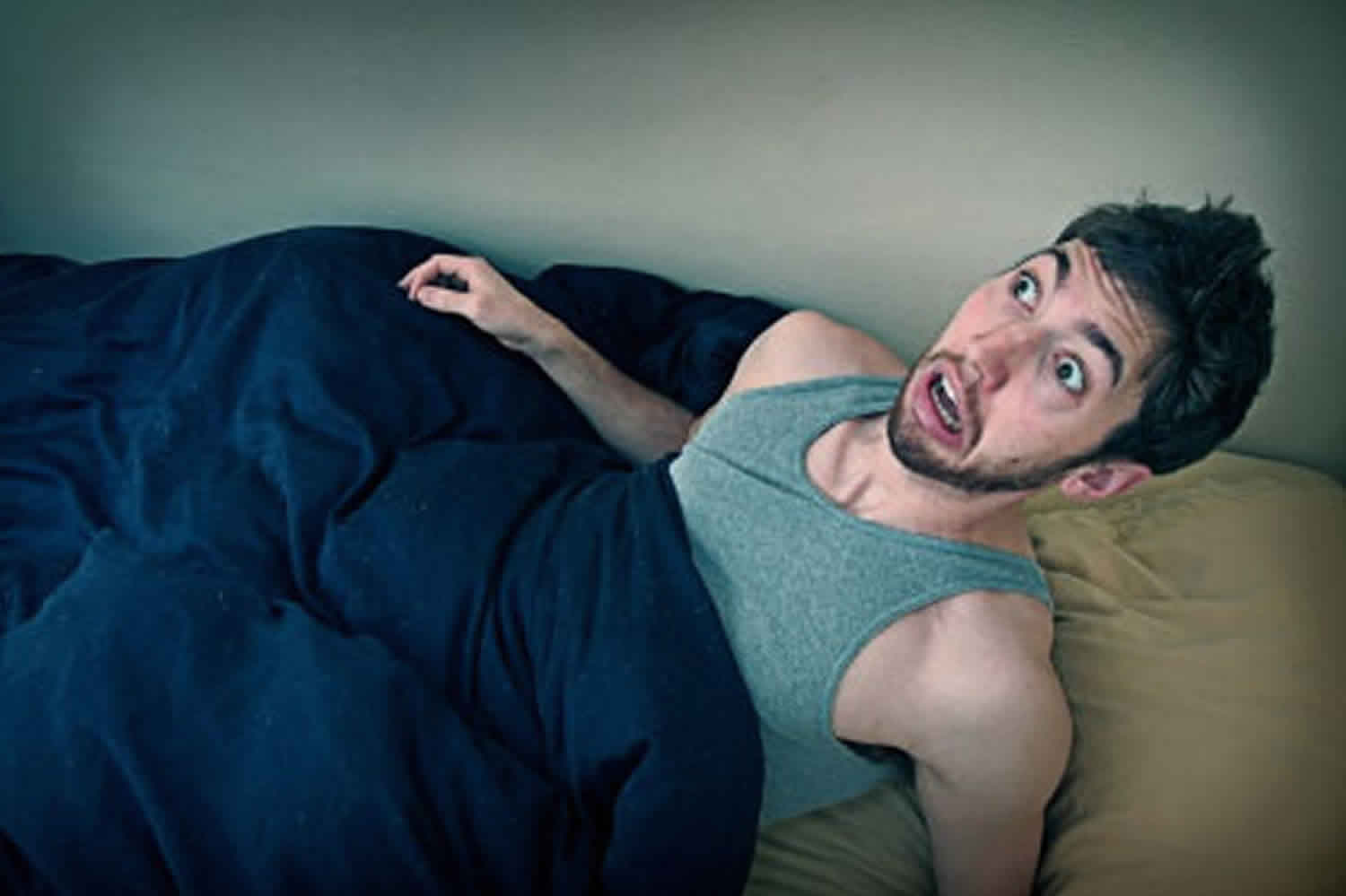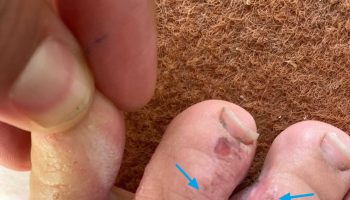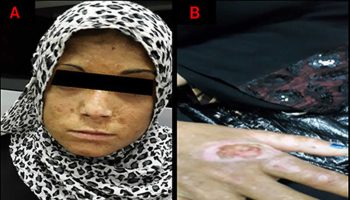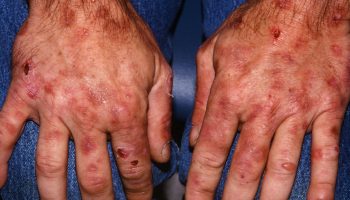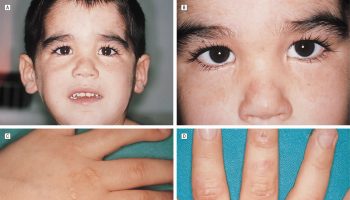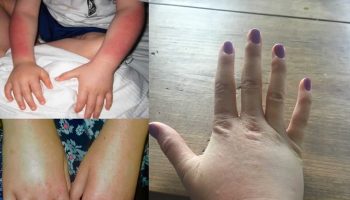Sleep drunkenness
Sleep drunkenness also known as confusional arousals or severe sleep inertia, is a sleep disorder that causes you to act in a very strange and confused way as you wake up or just after waking. Research finds 1 out of 7 may experience sleep drunkenness 1. The researchers also say 84 percent of the people with sleep drunkenness also had a sleep disorder, mental health disorder, or were taking psychotropic drugs, such as antidepressants 1.
Of the study participants with sleep drunkenness 1:
- 37.4 percent had a mental health disorder, such as depression, bipolar disorder, alcoholism, panic or post-traumatic stress disorder or anxiety. The highest odds were observed people with bipolar disorders or panic disorder.
- 31 percent were on psychotropic medications, such as antidepressants.
But researchers say the amount of sleep you get may also play a role 1. Both long and short sleep times are associated with the disorder. That’s because 20 percent of the people who’ve experienced “sleep drunkenness” admitted getting less than six hours of sleep per night, while 15 percent of them were getting at least nine hours.
Sleep drunkenness are considered a parasomnia. This class of sleep disorder involves unwanted events or experiences that occur while you are falling asleep, sleeping or waking up. Sleep drunkenness involve mental confusion or inappropriate behavior during or following arousals from sleep, typically from slow-wave sleep in the first part of the night, but also upon awakening in the morning 1. Sleep drunkenness may appear that you don’t know where you are or what you are doing.
Your behavior may include the following:
- Slow speech
- Confused thinking
- Poor memory
- Blunt responses to questions or requests
Sleep drunkenness or severe “sleep inertia” refers to the transitional state between sleep and wake, marked by impaired performance, reduced vigilance, and a desire to return to sleep. Sleep drunkenness episode can be triggered by a forced awakening and may even cause violent behavior during sleep or amnesia of the episode.
Sleep drunkenness tend to occur as you wake from slow-wave sleep. This sleep stage is most common in the first third of the night. In some cases, these episodes may occur later in the night or during a daytime nap.
When a sleep drunkenness occurs, you may seem to be awake even though you have a foggy state of mind. Episodes often start when someone else has to physically wake you up. Sleepwalking or shouting during an episode is common. Some people with sleep drunkenness also grind their teeth. These incidents may last a few minutes up to several hours. People with sleep drunkenness tend to have no memory of these episodes.
In some rare cases, adults may act very inappropriately or even hostile and aggressive. This behavior can put a huge strain on relationships. These extreme episodes are uncommon for most people who have confusional arousals.
Episodes of sleep drunkennesss in children may seem bizarre and frightening to parents. The child can have a confused look on his or her face and “stare right through” you. Children may become more agitated when you try to comfort them.
The intensity and duration of sleep drunkenness vary based on situational factors, but its effects may last minutes to several hours. Most episodes last from five to fifteen minutes. But they may last as long as thirty to forty minutes in some youth.
Sleep drunkenness is a normal phenomenon, but one with potentially dangerous ramifications, e.g., in health care workers or military personnel who are woken abruptly in the night and required to make cognitively-taxing decisions 2. In some disease states, a transitional period akin to markedly pronounced sleep inertia is present and is sometimes referred to as “sleep drunkenness”. Such pronounced sleep inertia is a core feature of idiopathic hypersomnia, a potential consequence of delayed sleep phase syndrome and a contributor to non-REM (NREM) arousal parasomnia severity 3. Difficulty awakening is also common in people with mood disorders and may be an important treatment target 4.
Optimal treatment of sleep drunkenness is unknown, although several medications have been used with benefit in small case series 5. Difficulty with awakening is also commonly endorsed by individuals with mood disorders, disproportionately to the general population. This may represent an important treatment target, but evidence-based treatment guidance is not yet available.
Sleep drunkenness causes
More studies are needed to pinpoint an actual cause for sleep drunkenness. Sleep drunkennesss are more likely if you have a relative with this sleep disorder. Other factors that can increase your risk for sleep drunkenness disorder include:
- Rotating shift work
- Night shift work
- Other sleep disorders (hypersomnia, insomnia, circadian rhythm sleep disorders)
- Not enough sleep
- Stress
- Worry
- Bipolar and depressive disorders
Potential causes for sleep drunkenness disorder include the following:
- Recovery from sleep deprivation
- Alcohol consumption
- Obstructive sleep apnea (OSA)
- Periodic limb movement disorder
- Psychotropic medication use
- Drug abuse
- Being forced to wake up
Sleep drunkennesss occur at the same rate among both men and women. Rates are high among children and adults under the age of 35. It may occur in as many as 17 percent of children. About three to four percent of adults have sleep drunkennesss.
Sleep drunkenness symptoms
Sleep drunkennesss causes you to act in a very strange and confused way as you wake up or just after waking. It may appear that you don’t know where you are or what you are doing. Your behavior may include the following:
- Slow speech
- Confused thinking
- Poor memory
- Blunt responses to questions or requests
When a sleep drunkenness occurs, you may seem to be awake even though you have a foggy state of mind. Episodes often start when someone else has to physically wake you up. Sleepwalking or shouting during an episode is common. Some people with sleep drunkennesss also grind their teeth. These incidents may last a few minutes up to several hours. People with sleep drunkennesss tend to have no memory of these episodes.
Sleep drunkenness diagnosis
Self test
- Has someone told you that you act in a way that is strange or confused when they wake you?
- Has this behavior been described as being hostile or aggressive?
- Have these actions been inappropriate in any way?
- Is this a pattern of behavior that occurs on a regular basis?
If your answer to each of these questions is yes, then you might have sleep drunkennesss. Because you may have no memory of the events, it can be hard for you to know on your own.
You will need to see a sleep specialist because this sleep disorder can cause severe problems. The doctor will require you to complete a sleep diary for two weeks. This will give the doctor clues as to what might be causing your problems. You can also rate your sleep with the Epworth Sleepiness Scale. This will help show how your sleep is affecting your daily life.
The doctor will need to know your complete medical history. Be sure to inform him or her of any past or present drug and medication use.
You may need to do an in-lab sleep study. This type of sleep study charts your brain waves, heart beat and breathing as you sleep. It also records how your arms and legs move. An in-lab study will show if there are other disorders, such as sleep apnea or a movement disorder that are causing your sleep problems. Many sleep studies will also record your sleep on video to show if you do anything unusual while you sleep.
Figure 1. Epworth Sleepiness Scale Questionnaire
Sleep drunkenness treatment
Any other sleep disorders that may be the cause of the unusual behavior need to be treated first. It may help if you cut back on alcohol or stop drinking it completely. It is also important that you always get a full night of sleep.
Some reports indicate that medication has helped. Antidepressants and sleeping pills are among the types of medication that have been used. Talk to your doctor for advice about this and any other form of treatment.
- Are confusional arousals pathological? Maurice M. Ohayon, Mark W. Mahowald, Damien Leger. Neurology Aug 2014, 83 (9) 834-841; DOI: 10.1212/WNL.0000000000000727[↩][↩][↩][↩][↩]
- Sudden early-morning awakening impairs immediate tactical planning in a changing ’emergency’ scenario. Horne J, Moseley R. J Sleep Res. 2011 Jun; 20(2):275-8.[↩]
- International classification of sleep disorders. 3. Darien, IL: American Academy of Sleep Medicine; 2014[↩]
- Development and Validation of the Sleep Inertia Questionnaire (SIQ) and Assessment of Sleep Inertia in Analogue and Clinical Depression. Kanady JC, Harvey AG. Cognit Ther Res. 2015 Oct; 39(5):601-612.[↩]
- Trotti LM. Waking up is the hardest thing I do all day: Sleep inertia and sleep drunkenness. Sleep Med Rev. 2017;35:76–84. doi:10.1016/j.smrv.2016.08.005 https://www.ncbi.nlm.nih.gov/pmc/articles/PMC5337178[↩]
